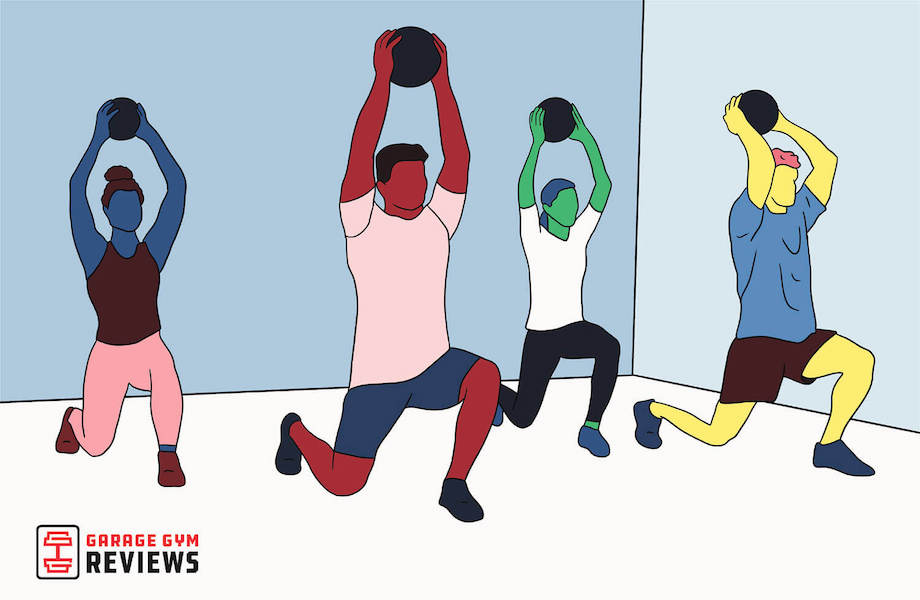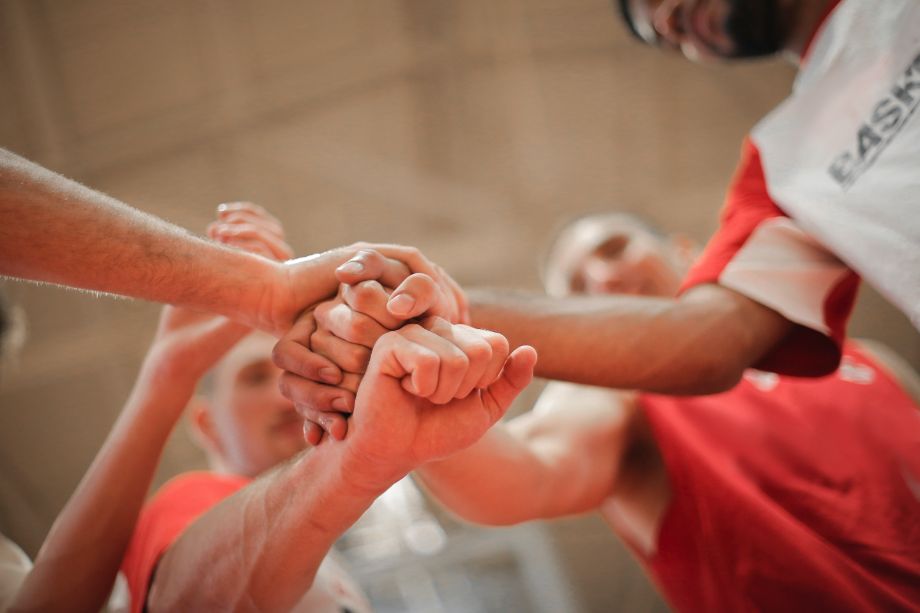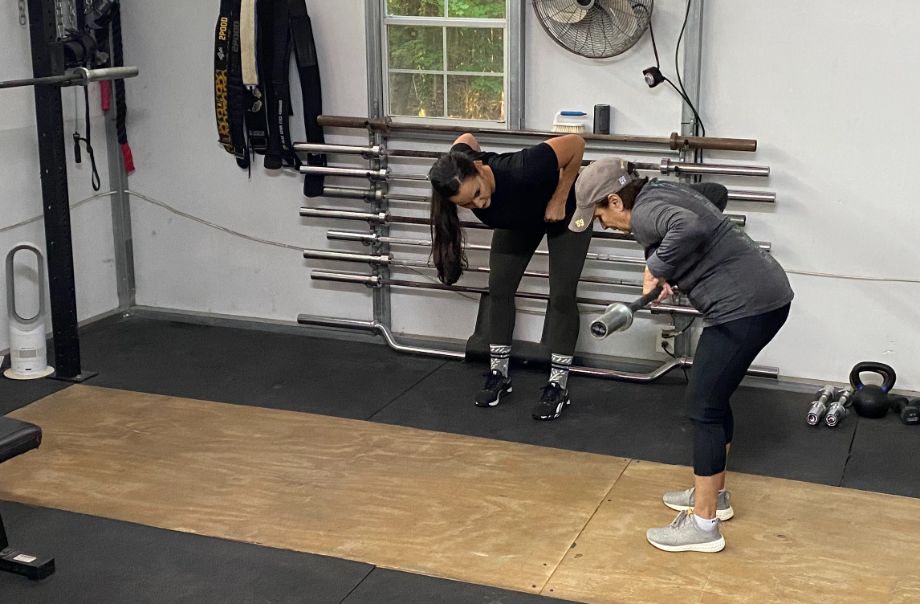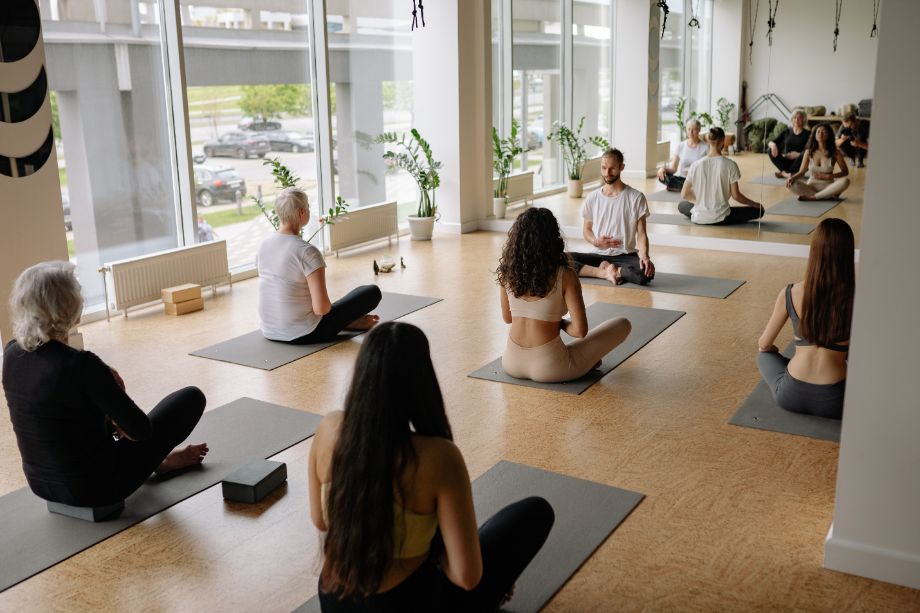We test and review fitness products based on an independent, multi-point methodology. If you use our links to purchase something, we may earn a commission. Read our disclosures.
There is a reason that group exercise classes are wildly popular. It is accessible, as many commercial gyms offer memberships that include group fitness classes. Also, there are many great benefits of group exercise, including physical and mental health perks. Let’s dig in.
Key Takeaways
- Group exercise can help alleviate stress, build social connections, stay accountable and motivated, and enjoy the health benefits of consistent physical activity
- Strong social connections help reduce and prevent mental health issues1 such as anxiety and depression as well as increase longevity and improve well-being.
- On the other hand, experiencing loneliness and social isolation can raise the likelihood2 of early death by 26% and 29%.
- 1 in 3 U.S. adults experiences loneliness at least once a week3.
- 95% of adults who began a weight-loss program with friends successfully completed it4 compared to 76% of adults who participated alone.
What Is Group Fitness?
Group fitness is a type of organized exercise class where a group of people collectively work out together, typically led by a certified instructor or personal trainer. It’s a type of class that is based around areas like cardio, strength training, flexibility, and endurance. Some examples of group setting classes are cycling, yoga, boot camp, and CrossFit.
Benefits of Group Exercise Classes
Why should you consider signing up for group exercise? Here are seven great reasons.

1. Reduce Mental Health Challenges
Oftentimes when stress levels are high, a good workout can make you feel better. This is due to release of endorphins and adrenaline that flood your system during a workout and gradually taper off, leaving you in a better mood.
According to a study published in July 2017 in the Journal of Osteopathic Medicine5, researchers found that participation in group exercise provided a significant decrease in stress levels and an increase in mental and physical well-being compared to individual workouts or no exercise at all. (This is not to say working out alone is bad! Some exercise is always better than none.)
Because group fitness classes have a social component, which is often lacking for those who workout alone, many find they’re helpful for relieving anxiety and depression.
2. Finding Community
Finding community is something we are biologically programmed to do. This originally began as survival instinct, but today, it has more to do with personal well-being and enjoying life around like-minded people. Exercise brings people together across generations and cultural differences.
According to a study conducted in August 2017 by BMC Geriatrics6, researchers found that in older adults ages 66 to 86 that group exercise enhanced a sense of community and security. This study also shows with regular group exercise, participants improved their mental and physical health, which positively impacted attitudes and increased engagement within the community.
Having social connections and friendships is important, and as adults, it’s often hard to make friends outside of work and family. Group exercise classes offer a great way to meet new people and expand your social circle.
If you’re new to class and aren’t sure how to make friends, you can strike up small talk, introduce yourself to someone new each time you go, or ask the instructor to introduce you to some of the regulars.
3. Be Held Accountable
We have all been there: We find any excuse to avoid getting up and going to the gym. However, it’s easier to ignore those excuses when you have someone else counting on you to show up.
In a study published by Wiley Online Library7, researchers found that people trying to lose weight who surrounded themselves with thinner people were more likely to actually lose the weight. In other words, it matters who you surround yourself with. In group classes you are surrounded by camaraderie in a community of people who will hold you accountable to show up, participate, encourage others, and help reach your fitness goals.
Outside of social support it’s great to know that in group exercise classes, there is a start and end time. Having a set class time is excellent for holding yourself accountable because it’s as simple as scheduling it into your day.
This is powerful for your fitness journey, especially if you struggle with motivation. Knowing others in class are expecting you to show up can be a nice push, and if you’re competitive, working with others can push you to train a little harder than you would on your own.
4. Options for Class Times
Another great benefit to group fitness classes is the way they can accommodate a busy schedule. Many gyms provide classes throughout the day, which means you can squeeze in a workout before or after work.

5. Find Motivation
We all lack motivation from time to time. This happens even to the most physically fit people who work out for a living! We are only human, and it’s easy to find distractions in the day that lead to a decrease in motivation.
In a study published by Archives of Public Health8, researchers studied people with adverse health and difficult life situations who participated in group exercise courses. Through these classes, they experienced positive changes to their mental, social, and physical well-being, which increased their motivation to attend classes and transferred positive behavioral changes to their everyday lives.
It may be hard to take those first steps, but with group exercise you are not alone. You can lean on others to provide that motivation when you are feeling down, and in return you can be that motivation for someone else. This is a power tool to help with habit-building, especially if you’ve struggled to be consistent with exercise.
6. Learn Proper Form
Getting started with exercise can be intimidating. As a beginner, creating an exercise routine is tough because of the unknown. You may not know what exercises are right for you, and this could lead to an injury if you have poor form.

In group classes, a certified fitness instructor or personal trainer guides you through the proper form for the movements you are doing. If you are interested in weight lifting, you can find a class to help you get started! Or maybe weights aren’t for you, but yoga, Zumba, Pilates, or TRX is, and you can work with people and instructors to help you learn. This will prevent injury and help you feel empowered during physical activity.
7. Enjoy Health Benefits of Regular Exercise
Of course, group exercise offers many of the mental and physical benefits of any other kind of regular exercise: burning calories, improved immunity, boost in mood, the list goes on.
With group exercise, you’re often going through fast-paced classes that can elevate your heart rate and provide a great cardio workout. If there’s a mix of strength training involved, you’ll also be building strength and muscle, supporting a strong, healthy body.
These benefits will not only help you in your fitness journey but will spill over into your daily life.
8. Increase Endorphins
A vigorous workout releases endorphins, endorphins that act as the body’s natural painkillers and can enhance your mood. If you’ve ever had a rush of euphoria and felt great after a tough workout, that’s the endorphins, often referred to as a “runner’s high” after a cardiovascular workout.
This release of endorphins can support mental health9 by relieving stress, improving your mood, and enhancing your overall sense of well-being.
FAQs About the Benefits of Group Exercise
What are the benefits of group exercise?
Group exercise helps keep you motivated, holds you accountable, can accommodate your busy schedule, teach you proper form to avoid an injury, and help you find a sense of community.
What is the importance of group training?
One of the most important aspects of group training, whether aerobic or anaerobic, is that it is guided instruction. A trainer takes you through proper movement, watches you exercise, and keeps you from getting hurt.
What is the group exercise definition?
Group exercise is when two or more people come together to do a fitness routine of some sort.
How can you become a group fitness instructor?
If you want to become a group fitness instructor, you’ll need some sort of certification. You may be qualified to lead as a certified personal trainer, depending on the facilities, and many continuing education courses also offer group fitness specializing training for fitness professionals.
References
- Abrams, Z. (n.d.). The science of why friendships keep us healthy. https://www.apa.org. https://www.apa.org/monitor/2023/06/cover-story-science-friendship
- Loneliness is hurting our health, but these policies could help. (2024, September 23). News. https://www.hsph.harvard.edu/news/features/loneliness-is-hurting-our-health-but-these-policies-could-help/
- New APA poll: One in three Americans feels lonely every week. (n.d.). https://www.psychiatry.org/news-room/news-releases/new-apa-poll-one-in-three-americans-feels-lonely-e
- Wing, R. R., & Jeffery, R. W. (1999). Benefits of recruiting participants with friends and increasing social support for weight loss and maintenance. Journal of consulting and clinical psychology, 67(1), 132–138. https://doi.org/10.1037//0022-006x.67.1.132
- Yorks, D., Frothingham, C. & Schuenke, M. (2017). Effects of Group Fitness Classes on Stress and Quality of Life of Medical Students. Journal of Osteopathic Medicine, 117(11), e17-e25. https://doi.org/10.7556/jaoa.2017.140
- Komatsu, H., Yagasaki, K., Saito, Y. et al. Regular group exercise contributes to balanced health in older adults in Japan: a qualitative study. BMC Geriatr 17, 190 (2017). https://doi.org/10.1186/s12877-017-0584-3
- Andersson, M.A. and Christakis, N.A. (2016), Desire for weight loss, weight-related social contact, and body mass outcomes. Obesity, 24: 1434-1437. https://doi.org/10.1002/oby.21512
- Stødle, I.V., Debesay, J., Pajalic, Z. et al. The experience of motivation and adherence to group-based exercise of Norwegians aged 80 and more: a qualitative study. Arch Public Health 77, 26 (2019). https://doi.org/10.1186/s13690-019-0354-0
- Supasitthumrong, T. (2024, September 20). Endorphins – The “feel good” chemicals for well-being. MedPark Hospital. https://www.medparkhospital.com/en-US/lifestyles/endorphins#:~:text=pain%2Drelieving%20drug.-,Endorphins%20are%20neurotransmitters%20released%20by%20the%20pituitary%20gland%20and%20hypothalamus,exercise%2C%20and%20sex%2C%20etc.
Further reading

What muscles does the bench press work? We review studies and dive deep to determine what muscles work hardest during this popular lift! Read more

No matter how you toss or drop them, these slam balls can endure some wear and tear. Here are our picks for the best slam balls on the market. Read more

Ready to track your next swim session? Our fitness experts helped make our list of the best waterproof fitness trackers to help you make your next pick. Read more

The best meal kits provide recipes that save you time and effort, but are as delicious as genuine home cooking. Read more

